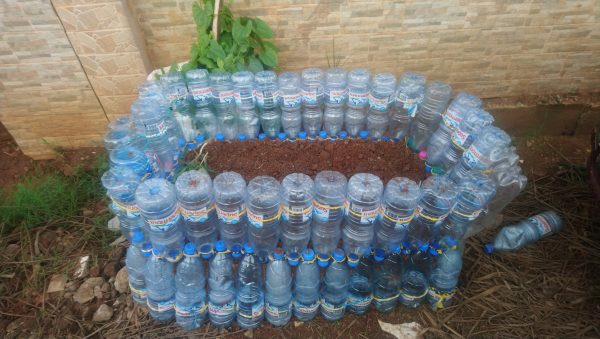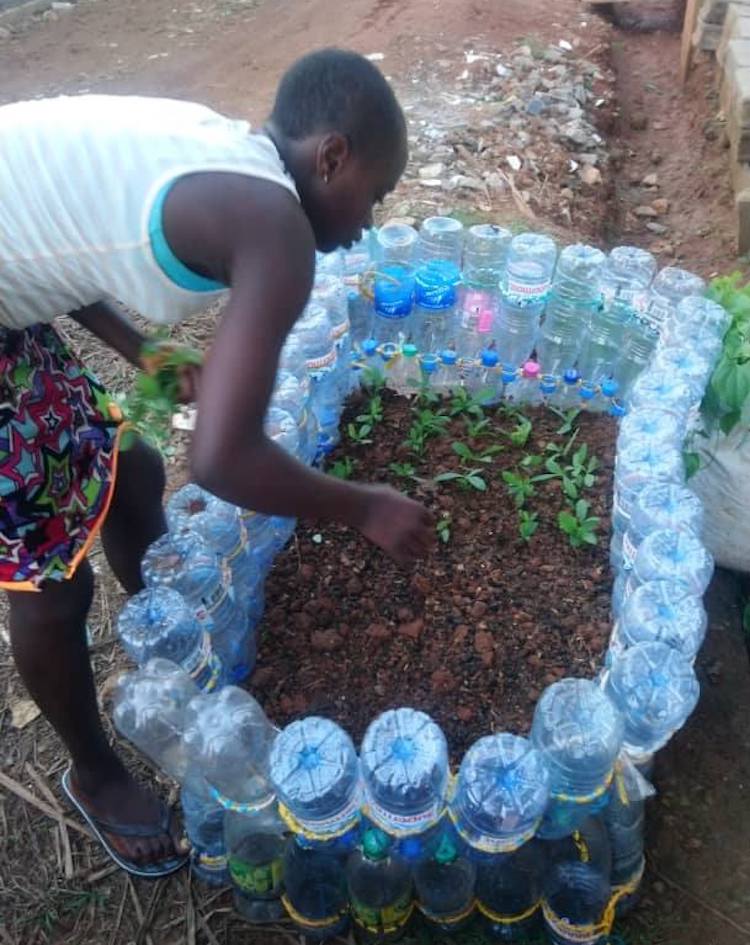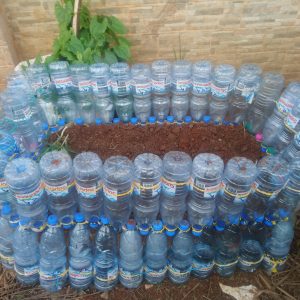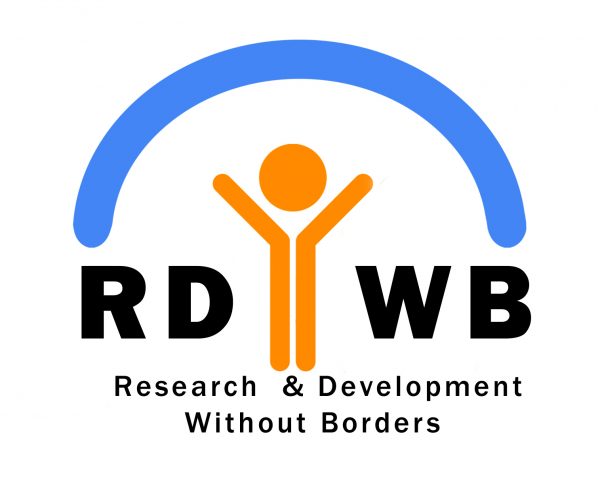Eco-Garden
Plastic pollution is dominant in the region; it releases toxic chemicals in the soil, affecting farmers. ECO-Garden is about removing plastic waste from the environment of the community, and reusing it to make cases for mini-home-vegetable gardens: provide food and contribute to improve the environment.


Overview of the project

Eco-Garden was created for several reasons, but mostly because littered plastics (bottles, packaging, bags, etc.), as well as all kinds of trash, harm the environment and the health of the community, and exacerbates climate change.
Plastic pollution is a critical problem in our community as it is the cause for many issues:
- plastic bottles clog drainage, and gutters, and that causes flooding in the city, which often leads to loss of lives, and properties
- littered waste in the environment serves as a breeding ground for mosquitoes, causing malaria and deaths amongst young children
- the burning of plastic bottles and papers/bags emits greenhouse gases to the atmosphere, as well as releases dangerous toxic fumes
- plastic waste releases toxic chemicals into the soil, and some of that plastic trash makes it difficult for farmers to till the soil for planting, resulting to poor planting and yield
- plastics are often washed out into the sea, which causes major problems are is a threat to aquatic life / marine life / marine biodiversity
As an internally displaced person (IDP), I am facing the problem of a lack of garden space for planting vegetables, thus a way to generate other food sources. Therefore, the Eco-Garden project seeks to contribute in resolving two major problems facing vulnerable families within the peri-urban community of Mbalngong:
- health issues caused by a degraded environment
- exacerbation of climate change (causes and effects)
- food insecurity
My approach to removing plastics from the environment to produce green gardens considers the aspects of sustainability, eco-friendliness, ease to use, economics, equity, and replicability.
The process simply consists of picking plastic bottles, and other plastic wastes from dumping sites, streets, and homes to recycle them into reuse: the bottles are washed, and plastic papers, bags, etc. are cut for rope making.
The ropes are weighed to know the quantity of papers removed from the environment. The ropes are then used to tie up the bottles to form a rectangular case. The case is then filled up with soil, and is ready for planting.
This project can be done by anyone, including people with a disability, and requires no technical skills. The case is easy to fill up with soil, and the height is adequate to prevent animals from eating, or destroying the plants. No financial capital is needed to start the project, and it requires minimal labour.
Therefore, the Eco-garden project can be replicated anywhere in the world by removing tons of plastics from the environment, and it helps reduce the carbon footprint.
Fighting against plastic pollution, environmental degradation and climate change by turning plastic waste into home gardens and/or vegetable gardens.
Launching
01/01/2021 - project still in progress
- One case to grow plants / vegetables consists of 130 plastic bottles, and uses approximately 500g of plastic papers as ropes.
- I have been able to produce so far 8 cases, hence removed 1040 plastic bottles, and 4kg of plastic papers from the environment.
- These cases have served 8 households with limited space as gardens, to start a small vegetable business.
- Vulnerable women, and young girls like me ( IDPs, widows, disabled), are taking up vegetable planting as a business with the availability of Eco-gardens.
- More than 500 youths within and outside of my community have learned how they can prevent greenhouse gas emissions, protect the environment, start a green business from scratch.
- Removing plastics from the environment has directly improved the wellbeing of others, and created a sustainable environment for future generations
- The wellbeing of the general Mbalngong community is improving as children, youths, and adults are all engaged in bringing plastic bottles to me to build more cases
- More than 80% of the community is happy about the initiative, and is encouraging children to follow my example
- Women and girls are improving the nutritive status of their homes, as more vegetables are planted in home gardens. They have expressed their 100% satistaction in using the case as practical garden for vegetables
I was able to raise initial funds from familiy and friends. My Project needs very little capital to start and execute.
organisation
ECO-GARDEN was created because littered plastics (bottles, packaging, bags, etc.), as well as all kinds of trash, harm the environment and the health of the community, and exacerbates climate change.
Plastic pollution is a critical problem in our community as it is the cause for many issues:
- plastic bottles clog drainage, and gutters, and that causes flooding in the city, which often leads to loss of lives, and properties
- littered waste in the environment serves as a breeding ground for mosquitoes, causing malaria and deaths amongst young children
- the burning of plastic bottles and papers/bags emits greenhouse gases to the atmosphere, as well as releases dangerous toxic fumes
- plastic waste releases toxic chemicals into the soil, and some of that plastic trash makes it difficult for farmers to till the soil for planting, resulting to poor planting and yield
- plastics are often washed out into the sea, which causes major problems are is a threat to aquatic life / marine life / marine biodiversity
My approach to removing plastics from the environment to produce green gardens considers the aspects of sustainability, eco-friendliness, ease to use, economics, equity, and replicability.
The process simply consists of picking plastic bottles, and other plastic wastes from dumping sites, streets, and homes. in order to recycle them into reuse: plastic papers / bags, etc. are cut for rope making, and the plastic bottles are washed and used to make mini-vegetable gardens.
This project can be done by anyone, including people with a disability, and requires no technical skills. Therefore, the Eco-garden project can be replicated anywhere in the world by removing tons of plastics from the environment, and it helps reduce the carbon footprint.
in collaboration



